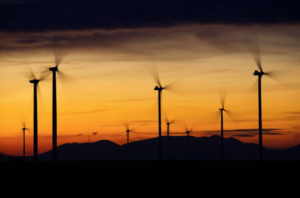(Argus, 12.Nov.2019) — Bolivia’s deepening political crisis is starting to take a toll on its vital hydrocarbons industry.
YPFB, Bolivia’s state-owned oil and natural gas company, warned Argentina it may not meet its gas export commitments because of the current unrest that has engulfed the country and led to a takeover of key installations.
In an 11 November letter to Argentina’s state-owned Ieasa, formerly known as Enarsa, YPFB said “groups of people” have taken over the Carrasco field as well as nearby pumping and compression stations.
“We do not discount the possibility that other natural gas production and transportation facilities could be taken over,” notes YPFB.
Foreign oil companies including European firms Repsol, Shell and Total have told Argus that their operations in Bolivia have not been affected, except for minor logistical and labor issues. Carrasco is wholly owned by YPFB’s Chaco unit.
Bolivia’s longtime president Evo Morales resigned on 10 November and fled to Mexico overnight, leaving a power vacuum that the political opposition is struggling to fill with an interim president plucked from the depleted ranks of the legislature.
Ieasa “has not had disruptions in gas imports by YPFB,” the Argentinian state-owned company said today, noting that the average of 10.5mn cm/d it has to receive under an existing long-term supply contract is being fulfilled.
The gas imports from Bolivia mainly supply distributors and power generators in northern Argentina.
So far, Bolivia’s pipeline gas exports to Argentina remain within the volume levels of its existing long-term supply contract, with an average of 11mn cm/d as of yesterday, according to an IEASA official.
YPFB “is carrying out its best efforts to mitigate the effects provoked by the current situation in order to continue supplying natural gas,” the Bolivian company’s letter said. Yet due to the current uncertainty of the situation, YPFB “invokes the liberation of the fulfillment of its obligations due to an event of force majeure.”
Argentina imports pipeline gas from Bolivia as part of a contract that was first signed in October 2006 and runs through 2026.
The terms of the Argentinian contract with YPFB have been amended four times, most recently in February. As part of that agreement, Bolivia agreed to deliver 18mn cm/d in June-August, the months when Argentina’s demand peaks because the fuel is used for heating during the southern hemisphere winter.
In May and September, Bolivia is committed to delivering 16mn cm/d while the rest of the year Bolivia exports 10.5mn cm/d.
A sudden halt in imports from Bolivia would affect around 10pc of the gas used in Argentina’s domestic market at this time of year.
Ieasa says it has developed a “contingency plan to minimize the impact of an eventual decrease” in pipeline imports from Bolivia.
The plan includes the possibility of using the LNG import terminal in Escobar, Buenos Aires province, pipeline imports from Chile via the northern Mejillones terminal, and an increase in the domestic supply of gas due to spare capacity. If needed, thermal plants could also start burning liquid fuels, Ieasa said.
Beyond the current supply situation, Bolivian gas is losing relevance in Argentina, where a shale play is gaining momentum in spite of broader economic challenges. Argentina’s gas production climbed by 5.9pc year on year to 135.35mn cm/d in the first eight months of 2019.
The rising gas output has opened the door to resume pipeline exports, largely to neighboring Chile, and Argentina also exported its first LNG cargo last week.
Brazil waits for a counterparty
Brazil also imports pipeline gas from Bolivia under a contract that expires next month. As in Argentina, Bolivian gas has lost ground in the Brazilian market, as a result of the country’s pre-salt boom and LNG imports.
It is not clear if Brazil’s state-controlled Petrobras has received a similar warning letter from YPFB, but Brazil’s oil regulator (ANP) said gas supplies from Bolivia are normal and that it does not foresee any supply issues. But negotiations with YPFB over its gas supply contract, which expires on 31 December, remain on hold because there is nobody to negotiate with on the Bolivian side, according to the ANP.
Petrobras has the contractual right to up to 31mn cm/d of Bolivian gas, of which 1.5mn cm/d is used for pipeline operations. Petrobras expects to continue to receive gas from Bolivia for up to four more years, because it had not purchased all of the total volume of 201.9bn cm stipulated in the contract.
Five Brazilian gas distributors in southern and central Brazil are currently negotiating supply contracts for a combined 10mn m³/d and YPFB is expected to emerge as the main supplier, displacing Petrobras.
By Daniel Politi
***


Aby całkowicie rozwiać wątpliwości, możesz dowiedzieć się, czy twój mąż zdradza cię w prawdziwym życiu na kilka sposobów i ocenić, jakie masz konkretne dowody, zanim zaczniesz podejrzewać, że druga osoba zdradza.